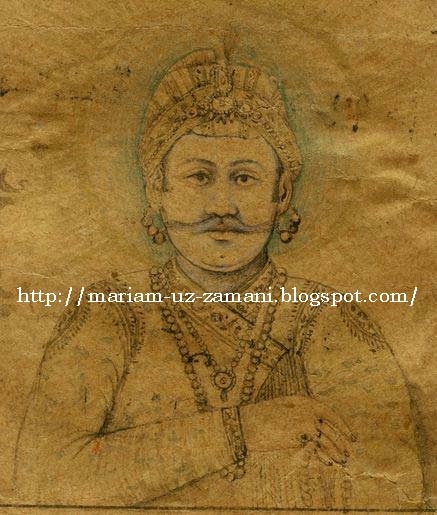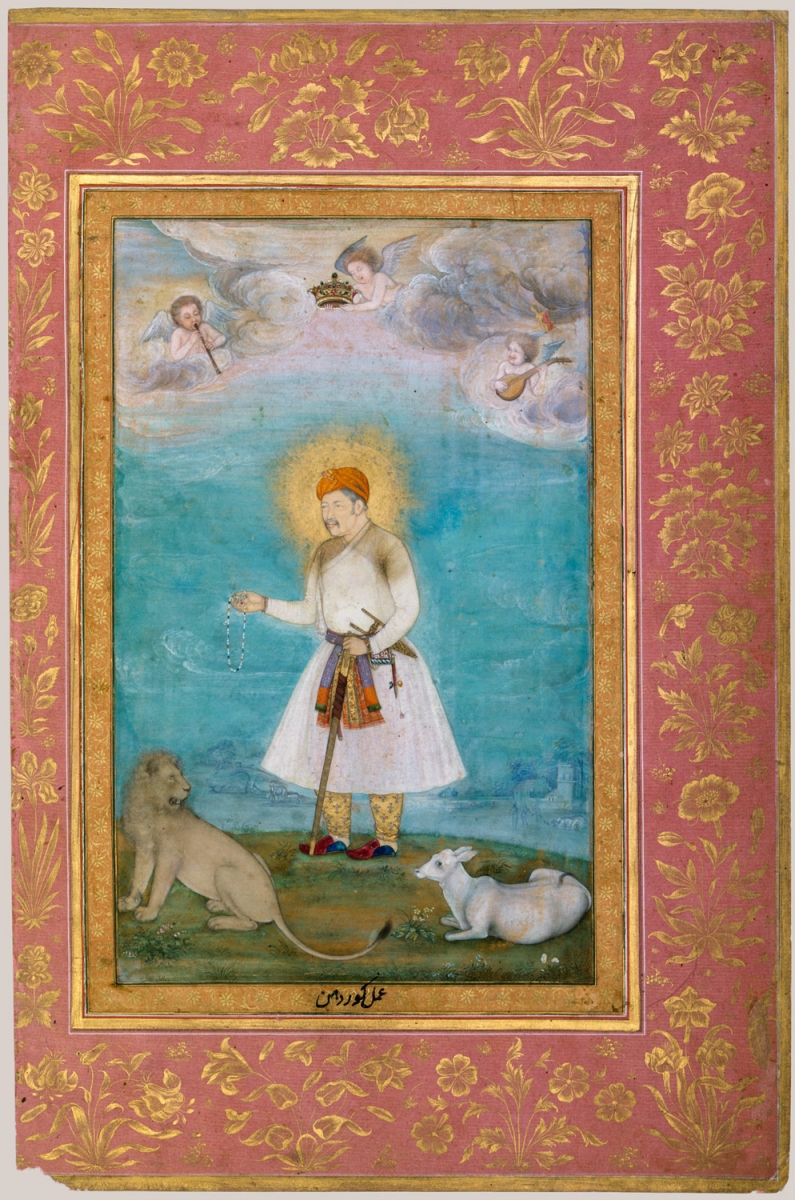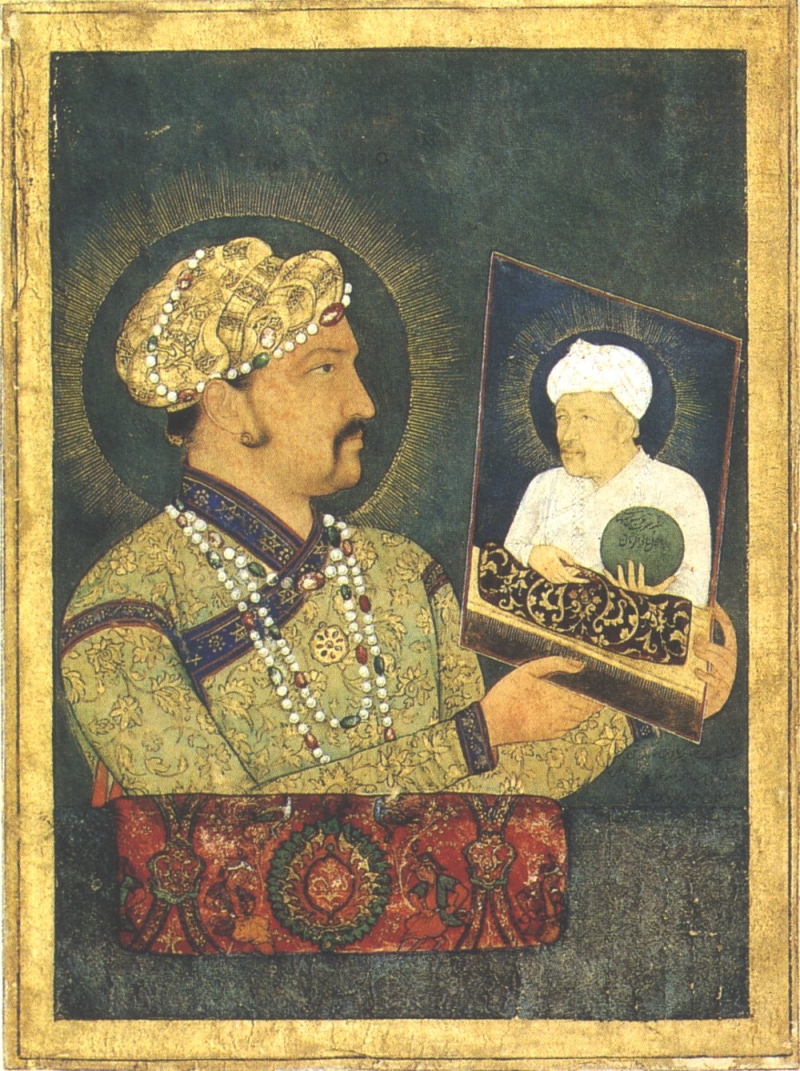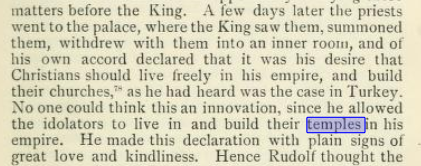Hello! This is a continuation of our discussion on just who the real Akbar was. Anyone is free to give their opinion and if all you guys wish to do is read the discussion, then it started somewhere here-
https://www.indiaforums.com/forum/post/165755809
And this particular message is a reply to this message,
https://www.indiaforums.com/forum/post/165756280
Hey!
Thanks for the reply and it was very informative reading it. I seriously am overjoyed that I get to learn something new every day because before today I was unaware that Akbar even had a beard, to go beardless and with a tilak on his forehead. After all, all his paintings show him being smooth-faced with only an artistic moustache in all his paintings.
(But it's known not to trust these paintings because in them he also has a wide, deep set of eyes, which, considering his Mongol ancestry... oh man, I dunno.)
Originally posted by: lkdaswani
And reading these books I find that Akbar wasn't a nice man...
Yes, he did do some good things, things that at that time would have seemed HUGE for an Emperor to do but with the present viewpoint, he really wasn't a good person.
Yes, I judge Akbar strictly through the present viewpoint and perhaps that is why I am so disappointed. The shows, the movies and even the NCERT can be blamed for this disappointment because when I was faced with the dark-grey reality of this historical figure, I was more than taken aback.
Regarding the citation, its saying this-
All I see is that the designation was changed from 'Slaves' to 'Chelas' or attendants. Whether they were paid, allowed to leave or allowed to refuse advances from men higher up still remains a mystery.
"What's in a name? That which we call rose by any other name will smell just as sweet."
But this saying of Shakespeare doesn't quite sit right when applied to history.
Calling the Hindu Princess turned Queen- Marium Uz Zamani does not hold the same cultural significance as her real name would have held.
The city of Prayag, now called Allahabad does NOT smell just as sweet... Prayag was the city sitting atop the confluence of the three most sacred rivers in the Hindu Religion, what is then Ilahibad or Allahabad (a gift of renaming given by the Mughals).
How would one feel if Mecca were renamed Krishna Nagar? Wars have been fought for less...even today, wars are being fought for much much less.
The Britishers too renamed many states in India, it's something we all still debate over. Act of renaming, then in the language of invaders, perhaps means Act of re-claiming that which is already claimed.
So the question arises and remains, Would renaming the slaves as attendants have been enough? If that was the minimum that was done.
And Where did these women even live? What was the ground reality of that palace? Even the show managed to show us the bitter truth of Badalgarh's harem (sanitised as they made it), ill, ailing or old- slaves were made to work from dawn to midnight.
Again, I would re-iterate that I am judging History from the present viewpoint all this was probably ok back then, but then...so was Sati Pratha. So was Jauhar.
Many would say that those two ways of dying have Different concepts-- one is forced on the woman while the other is Volutary and for honour but the end result is the same, a life taken away brutally.
Do those roses smell the same even with different names?
Temples? Dear, entire sacred Cities have been attacked and destroyed under Akbar. But perhaps even that would have been fine but to then plant Islamic shrines in place of Hindu gods?
Maybe this was before Akbar's complete change of heart happened but the fact remains that it happened and the King may have passed away but his actions effect us and history till today.
""It is also argued that he permitted the construction and repair of Hindu temples. But the fact that the holy cities of Prayag and Banaras, writes Vincent Smith (p 58), were plundered and destroyed by Akbar was conveniently underplayed. Monserrate, a contemporary of Akbar, writes (p 27), "The religious zeal of the Musalmans has destroyed all the idol temples which used to be numerous. In place of Hindu temples, countless tombs and little shrines have been erected.” Akbar destroyed several temples in the Indian subcontinent, but because he destroyed fewer temples than his successor Aurangzeb, he was ‘the Great’?""
Agreed 100% that Akbar stepped out of his comfort zone of being a Muslim King and did do things that set him apart from many kings before and after him but- that's what Kings are supposed to do.
That's literally the definition of leadership.
He was a good king, agreed, but he is not above reproach.
I also read in the same article that even the cancellation of Jaziya was temporary...i don't know how true that is, I await your reply about this.
""As a matter of fact, Jazia was withdrawn temporarily and this withdrawal was also not executed properly.""
And there are some opinions I have formed simply because they are there-- please feel free to correct me if I am wrong in any of these beliefs.
Were any of his children given a Hindu name or even a middle name? Did any of Akbar's daughters or sisters ever marry a Hindu Prince? Why was marital alliance considered only one way- Hindu Princesses marrying Akbar and converting? Why not the other way around?
(If such a thing happened then I am unaware of it and willing to change my opinion.)
I always say that the day Indians start marrying irrespective of caste is the day the caste system will end...Akbar knew the power of marriage, why not use it in this way as well?
And you said that removing the real name of MUZ from history was not an act of religious bigotry...if not then what was it? And who did it? Was it Aurangzeb or some random Mughal?
Or was it some Hindu scribe unwilling to ever show the world that a Hindu Princess could ever become what MUZ became?
Who else holds a vested interest in removing the name of a mere woman? Again, a genuine question-- I know my tone can often be confront-tary but trust me, I am just as shocked about all this as the day I read it and my passion is still strong hence I might be coming a bit strong. Pardon me if any of my words are hurtful or offensive.
No, I don't think I can call it misogyny because MUZ's achievements have not been hidden, had it been misogyny then MUZ would have been shown like any other silent broodmare, thankfully that is not the case but...
Her name has been hidden. Her identity has also and her religion was a big part of her identity. Stating that Fatehpur Sikri has Hindu Gods etched onto its minarets is one point but completely obfuscating this particular woman's history is another.
Lol yeah, wasn't this James Todd the guy who gave the misnomer Jodha Bai to MUZ? Haha, we've been stuck on it ever since. To be fair to this historian, it's quite catchy.
So if the bully came to you and apologized, would it heal the past trauma automatically? Forgiveness is something I have trouble with, personally but I can acknowledge that yes, to go against your people to the extent of being called 'kaafir' and having to fight back assassination attempts would have been nigh difficult but it would have been easier than offending all the Hindus in India back them (In quite a bit of majority even back then).
So the situation is such, three people are tied to the train track, a train coming at full speed- derail it, all the people in the train die. Don't derail it, the people on the track die. The three is the strength of Muslims back then, the full train is of Hindus.
Akbar... chose the middle route which would have been invisible to many and for that he has my respect.
He was highly diplomatic and cunning when he decided NOT to subjugate Hindus in their own country as other Islamic invaders had done- perhaps he believed in the saying,
"Insanity- doing the same thing over and over again and expecting different results."
Akbar, by taking the road less travelled, became one of the greatest Islamic Kings the world has ever seen.
NCERT's...man. Lets not start.
Yes, as they say- "Every sinner has a future and every saint a past" ill deeds definitely can be atoned, but forgiveness is a choice, not a reward.
Regarding the Chatrapati thing, so many people call so many politicians 'Gods/messengers of God' today...does that mean much? Perhaps, perhaps not.
No relation to the court .ie. no relation to politics and people disconnected from politics are further from reality than they think they are.
And again, Jaunpur may not have been Agra but it WAS under Jalal's rule, to speak against him could have been catastrophic for both the man and his family- conjecture!
Again, to conclude. I don't hate Akbar and I don't love Akbar. I am neither indifferent nor neutral. I am swimming in a sea of opinions, trying to reach a shore of my choice.
I am writing Fitoori which obviously means that I love Akbar from the show... I just wish that he matched the reality more.






































372